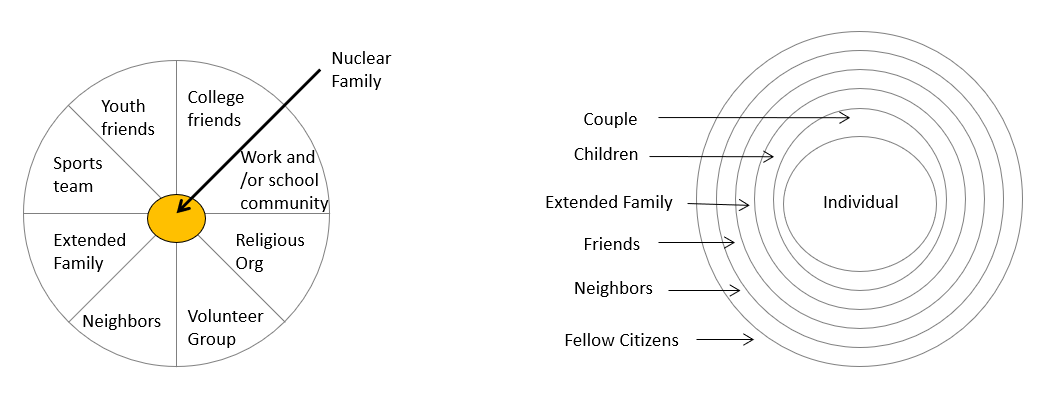The “peach and the coconut” is a useful metaphor. It helps us understand two extremes of how cultures view relationships and public and private domains.

Peaches
The peaches of the world are warm and fuzzy on the outside. They often greet strangers with smiles and friendliness, and quickly jump to what may seem to others like “personal questions”. A thin outer skin makes it relatively easy for an outsider to “bite right in” and enter the peach’s world as a “friend”. As a result, they grant trust more easily from the beginning. Peaches tend to divide up the majority of their relationships into neat interest-based segments. For example, work friends, school friends, leisure friends, religious affiliation friends, and so forth. These all tend to remain distinct and separate slices of the peach’s life. And they don’t mix these groups easily. Loyalty and obligation levels are lower. Therefore, when the common interest that you “transact” about with a friend disappears, oftentimes so does the relationship.
Coconuts
Coconuts on the other hand, tend to give different first impressions. Rather than the friendly and inviting exterior of the peach, coconuts present a hard and rough outside shell. As a result, one cannot simply “bite right into” the coconut. Trust must be earned. To “crack the shell”, a substantial period of time may be necessary. A coconut is not typically sliced into distinct wedges. So friendships are not necessarily interest-based. Rather, they are being-based and focused on the whole of a person. They cut across many interests as people work and play together and combine different parts of their worlds on a regular basis. There is a “go the distance” mentality built on loyalty and obligation. The inside of the coconut is similar to a spider web. Therefore, once you are stuck on it, it becomes very difficult to fall off.
Determining whether you and your colleagues are more similar to peaches or more akin to coconuts can be a powerful tool in managing expectations and understanding relationship boundaries. Most people working in international environments will have both types of relationships, even if they have a personal preference for one style.
Tips for Peaches:
Bear in mind that you are more transactional and often “manage” relationships. With coconuts, trust, assurance, and confidence will require a longer developmental process. But, once you crack the seemingly cold initial shell and establish these, they will permeate all aspects of a relationship with a longer-term perspective.
Biggest misconception about peaches: Superficiality
Examples of “peachy” countries: United States, Brazil
Tips for Coconuts:
Bear in mind that you are more being-based and often “build” relationships. With peaches, consider that the ease with which a relationship is established at the outset does not mean that access to all areas of that persons’s world will be automatically granted. Nor does it necessarily constitute superficiality.
Biggest misconception about coconuts: Takes too long to get to know someone
Examples of “coconutty” countries: Germany, Japan













